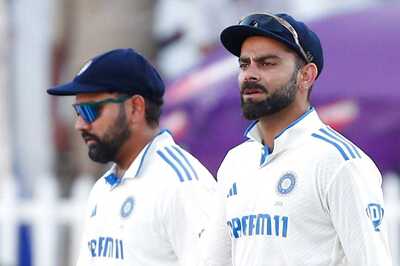
views
Budget 2023: Finance Minister Nirmala Sitharaman will present the Union Budget 2023 on Wednesday, February 1. The anticipation of relief in personal taxation is inevitable. The Income-Tax Act, 1961 provides numerous deductions for individuals. However, the current limits of these deductions are quite low compared to the increased cost of living over the years. As of now, 80C and 80D are the two significant sections in the Income Tax Act that help taxpayers save some tax.
What is Section 80C of the Income Tax act?
Section 80C is a popular tax saving option in the Income Tax Act. It allows individuals to reduce taxable income by making tax saving investments or incurring eligible expenses. It allows a maximum deduction of Rs 1.5 lakh every year from the taxpayers’ total income.
The benefit of this deduction can be availed by taxpayers and Hindu Undivided Families (HUL).
Companies, partnership firms, LLPs cannot avail the benefit of this deduction.
Section 80C includes subsections — 80CCC, 80CCD (1), 80CCD (1b) and 80CCD (2).
It is important to note that the overall limit including the subsections for claiming deduction is Rs 1.5 lakh except an additional deduction of Rs 50,000 allowed u/s 80CCD(1b).
Some of the popular investments which are eligible for this tax deduction are mentioned below.
– Life insurance policies (for self, spouse or children)
– Provident fund
– Tuition fees paid to educate a maximum of two children
– Construction or purchase of a residential property
– Fixed deposit with a minimum tenure of 5 years
This section provides for a number of additional deductions like investment in mutual funds, senior citizens saving schemes, purchase of NABARD bonds, etc.
What is Section 80D of the Income Tax Act?
Section 80D allows a deduction for money spent on maintaining an individual and their family’s health and health insurance.
Individuals can claim deductions against the premium payments they make on medical insurance policies under 80D. One can claim up to Rs 25,000 for insurance premiums paid on a policy in their name, spouse’s name or the name of their dependent children.
Additionally, one can also claim deduction for the insurance premium paid for their parent’s medical insurance. In that case, one can again claim a maximum of Rs. 25,000 if they are less than 60 years of age, or Rs 50,000 in case both of them are above 60 years of age.
An additional deduction brought to action from FY 2015-2016, individuals are allowed to claim Rs 5,000 for the payments made towards preventive health check-up.
Read all the Latest Business News here



















Comments
0 comment